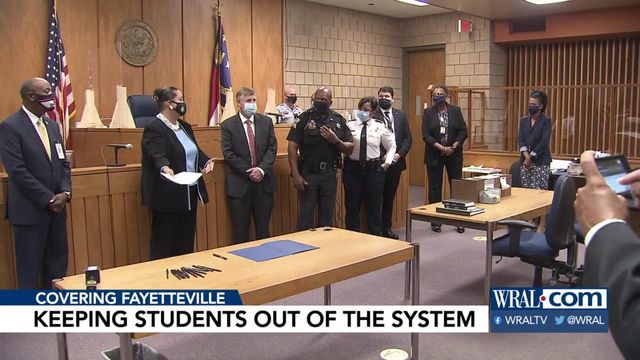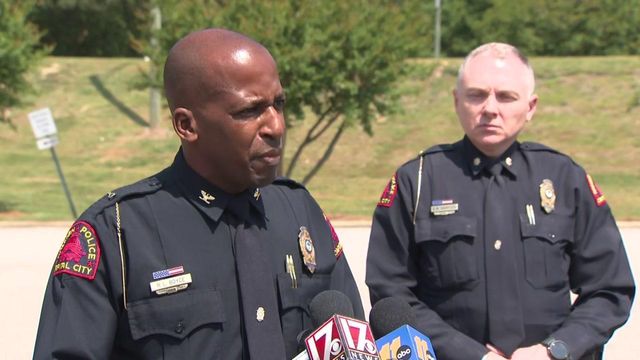New program aims to keep kids in the classroom, out of the courtroom
In 2018 more than 10,000 students were referred to the justice system from incidents that happened at school, according to the North Carolina School Justice Partnership.
Students have been misbehaving in schools for years. But a disproportionate number of children of color who misbehave end up in court.
To help combat this so-called "Pipeline to Prison," lawmen, educators and judges signed a pledge earlier this week to help break the cycle.
The premise is simple: How do you keep kids inside classrooms and out of the courtroom?
"This partnership helps us eradicate the school to prison pipeline by having more restorative justice options," said Dr. Marvin Connelly, Cumberland County school superintendent.
Research shows Black students are disproportionally impacted
The North Carolina School Justice Partnership said many school discipline practices disproportionately impact students of color.
For example, Black students make up 26% of the population, but receive 57% of suspensions.
In addition, Black students are two-and-a-half times more likely to be referred to juvenile court.
They're also one-and-a-half times more likely to be placed in secure confinement than white students.
Honorable Toni King, the Cumberland County District Court judge, believes most of the offenses are minor and could worked out on campus.
"Our goal in the justice system is not to place students in custody. But we want to address the need, whether it be emotional needs or any sort of physical needs," said King.
According to King, the program seems to be working.
There's been a 43% decrease in court referrals, and the graduation rate in Cumberland County is up by 24%.
Right now, the courtroom is empty because of the pandemic. The hope is that this new partnership and document helps keep students out of court when schools get back in.












